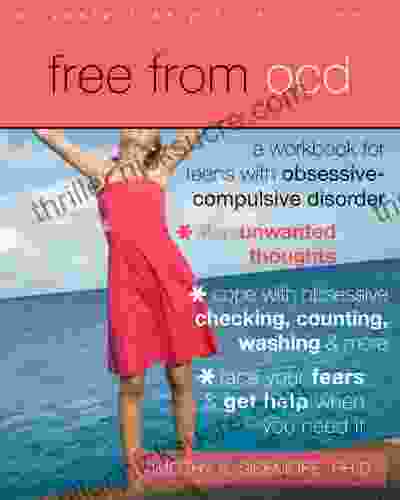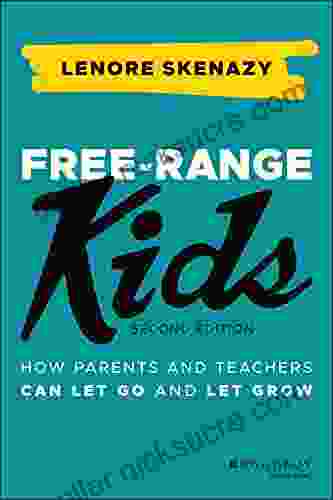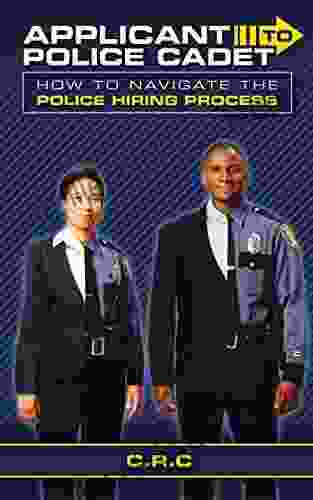Workbook for Teens with Obsessive Compulsive Disorder: A Comprehensive Guide to Managing Symptoms and Regaining Control of Your Life

Obsessive compulsive disorder (OCD) is a mental health condition that affects about 1 in 100 teens. OCD is characterized by recurrent, unwanted thoughts (obsessions) and repetitive behaviors (compulsions) that a person feels driven to perform. These obsessions and compulsions can be very distressing and can interfere with a person's daily life.
This workbook is designed to help teens with OCD learn about their condition and develop effective strategies for managing their symptoms. The workbook includes information on the causes and symptoms of OCD, as well as a variety of cognitive-behavioral therapy (CBT) techniques that have been shown to be effective in treating OCD. The workbook also includes exercises and activities that teens can use to practice their CBT skills and track their progress over time.
OCD is a mental health condition that affects about 1 in 100 teens. OCD is characterized by recurrent, unwanted thoughts (obsessions) and repetitive behaviors (compulsions) that a person feels driven to perform. These obsessions and compulsions can be very distressing and can interfere with a person's daily life.
4.5 out of 5
| Language | : | English |
| File size | : | 614 KB |
| Text-to-Speech | : | Enabled |
| Enhanced typesetting | : | Enabled |
| Word Wise | : | Enabled |
| Print length | : | 146 pages |
| Screen Reader | : | Supported |
Obsessions are unwanted, intrusive thoughts, images, or urges that repeatedly enter a person's mind. These thoughts can be about anything, but they are often related to fears of contamination, harm, or perfectionism.
Compulsions are repetitive behaviors or mental acts that a person feels driven to perform in response to their obsessions. These behaviors are often aimed at reducing anxiety or preventing something bad from happening.
OCD can be a very challenging condition to live with. The obsessions and compulsions can be very time-consuming and can interfere with a person's ability to function in school, at work, or in social situations.
The exact cause of OCD is unknown, but it is thought to be caused by a combination of genetic and environmental factors. Studies have shown that OCD is more common in people who have a family history of the disorder, suggesting that there is a genetic component to the condition. However, OCD can also be triggered by environmental factors, such as stress or trauma.
The symptoms of OCD can vary from person to person. However, some of the most common symptoms include:
- Obsessions: These are unwanted, intrusive thoughts, images, or urges that repeatedly enter a person's mind. These thoughts can be about anything, but they are often related to fears of contamination, harm, or perfectionism.
- Compulsions: These are repetitive behaviors or mental acts that a person feels driven to perform in response to their obsessions. These behaviors are often aimed at reducing anxiety or preventing something bad from happening.
- Anxiety: OCD can cause a great deal of anxiety. This anxiety can be triggered by the obsessions themselves, or by the compulsions that a person feels driven to perform.
- Depression: OCD can also lead to depression. This is because the symptoms of OCD can be very frustrating and can interfere with a person's ability to function in daily life.
OCD can be treated with a variety of therapies, including cognitive-behavioral therapy (CBT),medication, and exposure and response prevention (ERP).
Cognitive-behavioral therapy (CBT) is a type of therapy that helps people to change their thoughts and behaviors. CBT for OCD focuses on teaching people how to identify and challenge their obsessions and compulsions. CBT can also help people to develop coping mechanisms for managing their anxiety.
Medication can also be helpful in treating OCD. There are a variety of medications that can be used to treat OCD, including antidepressants and anti-anxiety medications.
Exposure and response prevention (ERP) is a type of therapy that involves exposing people to the things that they fear and preventing them from performing their compulsions. ERP can be a very effective treatment for OCD, but it can also be very challenging.
If your teen has OCD, there are a number of things you can do to help them. Some of the most important things include:
- Be supportive and understanding. It is important to remember that OCD is a mental health condition and that it is not your teen's fault. Be supportive and understanding of your teen's symptoms, and let them know that you are there for them.
- Encourage your teen to seek professional help. If your teen's OCD is interfering with their daily life, it is important to encourage them to seek professional help. A therapist can help your teen to develop coping mechanisms for managing their symptoms and to get their OCD under control.
- Help your teen to develop a support system. It is important for your teen to have a support system of people who understand what they are going through. This could include family members, friends, or a support group.
- Educate yourself about OCD. The more you know about OCD, the better you will be able to understand your teen's symptoms and support them in their recovery. There are a number of resources available to help you learn more about OCD, including books, websites, and support groups.
OCD can be a challenging condition to live with, but it is important to remember that it is treatable. With the right treatment and support, your teen can learn to manage their symptoms and live a full and happy life.
4.5 out of 5
| Language | : | English |
| File size | : | 614 KB |
| Text-to-Speech | : | Enabled |
| Enhanced typesetting | : | Enabled |
| Word Wise | : | Enabled |
| Print length | : | 146 pages |
| Screen Reader | : | Supported |
Do you want to contribute by writing guest posts on this blog?
Please contact us and send us a resume of previous articles that you have written.
 Fiction
Fiction Non Fiction
Non Fiction Romance
Romance Mystery
Mystery Thriller
Thriller SciFi
SciFi Fantasy
Fantasy Horror
Horror Biography
Biography Selfhelp
Selfhelp Business
Business History
History Classics
Classics Poetry
Poetry Childrens
Childrens Young Adult
Young Adult Educational
Educational Cooking
Cooking Travel
Travel Lifestyle
Lifestyle Spirituality
Spirituality Health
Health Fitness
Fitness Technology
Technology Science
Science Arts
Arts Crafts
Crafts DIY
DIY Gardening
Gardening Petcare
Petcare Dr Monique Thompson Dha Lpc
Dr Monique Thompson Dha Lpc Heather Rose
Heather Rose Tyler Hamilton
Tyler Hamilton Steve Oakes
Steve Oakes Kent Hoffman
Kent Hoffman Kara Forney
Kara Forney Peter Allison
Peter Allison Caitlyn Dare
Caitlyn Dare Joseph Burbridge
Joseph Burbridge Megan Whalen Turner
Megan Whalen Turner Penny Alexander
Penny Alexander Smart Edition
Smart Edition Keith Ammann
Keith Ammann Rich Osthoff
Rich Osthoff Mohammad F Anwar
Mohammad F Anwar Helen Zee
Helen Zee Lana Peek
Lana Peek Lucas Chancel
Lucas Chancel Khalid Khashoggi
Khalid Khashoggi Seb Falk
Seb Falk Tadashi Yoshimura
Tadashi Yoshimura Julie Cangialosi
Julie Cangialosi Ernle Bradford
Ernle Bradford John Mcenroe
John Mcenroe John Cooper
John Cooper Charlie Francis
Charlie Francis Robert Wright
Robert Wright Courtney Macavinta
Courtney Macavinta Matt Schifferle
Matt Schifferle Lee Alan Dugatkin
Lee Alan Dugatkin Ned Mcintosh
Ned Mcintosh Laura A Jana
Laura A Jana Fritjof Capra
Fritjof Capra David Mcclung
David Mcclung Michael Mason
Michael Mason Nicole Morales Lm Cpm
Nicole Morales Lm Cpm Jessica Minahan
Jessica Minahan Grete Waitz
Grete Waitz Jp Lepeley
Jp Lepeley Gerson S Sher
Gerson S Sher Mark Powell
Mark Powell Stephen Hawking
Stephen Hawking Mike Eastman
Mike Eastman Santari Green
Santari Green Carlo Zen
Carlo Zen Roach Mary
Roach Mary Charles Wilson
Charles Wilson Piero Ferrucci
Piero Ferrucci Nora Roberts
Nora Roberts Jeannette De Wyze
Jeannette De Wyze Jackson T Markbrown
Jackson T Markbrown Mick Conefrey
Mick Conefrey John A Fortunato
John A Fortunato Danny Staple
Danny Staple Leigh Pearson
Leigh Pearson Patrick Garbin
Patrick Garbin Tim Falconer
Tim Falconer Paul Farmer
Paul Farmer Matthew Desmond
Matthew Desmond Steven Hugg
Steven Hugg George Olsen
George Olsen David Hoffman
David Hoffman Dava Sobel
Dava Sobel Celina Grace
Celina Grace Rob Vollman
Rob Vollman Kaylene Yoder
Kaylene Yoder Kicki Hansard
Kicki Hansard David Cannon
David Cannon Robin Dunbar
Robin Dunbar Derick Lugo
Derick Lugo Rosalyn Sheehy
Rosalyn Sheehy Brion Toss
Brion Toss Richard Post
Richard Post Sara Elliott Price
Sara Elliott Price Denise Long
Denise Long Christopher Ketcham
Christopher Ketcham Vicki Franz
Vicki Franz Steven Shapin
Steven Shapin Brian R King
Brian R King Ronald M Rapee
Ronald M Rapee Mark William
Mark William Eze Ugbor
Eze Ugbor Dr Nanhee Byrnes
Dr Nanhee Byrnes Bruce Lee
Bruce Lee Milne Cc Pocock
Milne Cc Pocock Wilborn Hampton
Wilborn Hampton 1st Ed 2018 Edition Kindle Edition
1st Ed 2018 Edition Kindle Edition Harry Bauld
Harry Bauld Dr Lena Edwards
Dr Lena Edwards Damien Cox
Damien Cox Mark Johnston
Mark Johnston Jane Albert
Jane Albert Lisa Scottoline
Lisa Scottoline Steven Verrier
Steven Verrier Nick Heil
Nick Heil Cecelia Ahern
Cecelia Ahern Emilee Day
Emilee Day Kenneth Paul Rosenberg
Kenneth Paul Rosenberg Henry Worsley
Henry Worsley Zigzag English
Zigzag English Gerald R Allen
Gerald R Allen Melanie Challenger
Melanie Challenger Joanne M Flood
Joanne M Flood Matt Parker
Matt Parker Avery Faigenbaum
Avery Faigenbaum Genie Reads
Genie Reads Clayton King
Clayton King Charles Todd
Charles Todd Calvin Trillin
Calvin Trillin Brian Everitt
Brian Everitt J Wayne Fears
J Wayne Fears Grace Mariana Rector
Grace Mariana Rector Kelle James
Kelle James St Teresa Of Avila
St Teresa Of Avila Lewis Black
Lewis Black Tom Cunliffe
Tom Cunliffe Colette Harris
Colette Harris Brian Herne
Brian Herne Stephanie Perkins
Stephanie Perkins Nathan Halberstadt
Nathan Halberstadt Masaaki Kijima
Masaaki Kijima David Hackett Fischer
David Hackett Fischer Michael Shaw
Michael Shaw Daniel Bagur
Daniel Bagur Brienne Murk
Brienne Murk Steve Williams
Steve Williams Adam Night
Adam Night Mary Strand
Mary Strand Thao Te
Thao Te Dawna Markova
Dawna Markova John Moren
John Moren Natalia Rojas
Natalia Rojas Patricia Wooster
Patricia Wooster Salima Ikram
Salima Ikram Frederick Grinnell
Frederick Grinnell Brittany Cavallaro
Brittany Cavallaro Jonti Marks
Jonti Marks William Trubridge
William Trubridge Ron Lieber
Ron Lieber Matt Morton
Matt Morton Jeremy Bradstreet
Jeremy Bradstreet Soong Chan Rah
Soong Chan Rah Mary Heffernan
Mary Heffernan Michel Odent
Michel Odent Diana J Mason
Diana J Mason Catherine Shainberg
Catherine Shainberg Inger Mewburn
Inger Mewburn Iwan Rhys Morus
Iwan Rhys Morus Sean Michael Wilson
Sean Michael Wilson Tom M Apostol
Tom M Apostol Carol Kaesuk Yoon
Carol Kaesuk Yoon Genevieve Bardwell
Genevieve Bardwell Keith Ryan Cartwright
Keith Ryan Cartwright Christine Brennan
Christine Brennan Guy P Harrison
Guy P Harrison Emily Lauren Dick
Emily Lauren Dick Eduardo Montano
Eduardo Montano David Barrett
David Barrett Victor A Bloomfield
Victor A Bloomfield Toni Weschler
Toni Weschler Kusha Karvandi
Kusha Karvandi J F James
J F James Kevin Alexander
Kevin Alexander Jay H Lefkowitch
Jay H Lefkowitch Jameswesley Rawles
Jameswesley Rawles Estelle Dautry
Estelle Dautry Timothy A Sisemore
Timothy A Sisemore J C Cervantes
J C Cervantes Jimmie Holland
Jimmie Holland Jonathan Grix
Jonathan Grix Mark J Ferrari
Mark J Ferrari Nate Allen
Nate Allen Douglas Wood
Douglas Wood Cheryl Diamond
Cheryl Diamond Jodi Aman
Jodi Aman Florence Weiser
Florence Weiser J R Mathews
J R Mathews Mahmood Mamdani
Mahmood Mamdani Rory D Nelson
Rory D Nelson Sara Gaviria
Sara Gaviria Sonja Schwartzbach
Sonja Schwartzbach Malcolm Hebron
Malcolm Hebron Della Ata Khoury
Della Ata Khoury James D Tabor
James D Tabor Dinesh Kumar Goyal
Dinesh Kumar Goyal Robert Ullman
Robert Ullman Don Brown
Don Brown Nicholas Gallo
Nicholas Gallo Bruce Macdonald
Bruce Macdonald Jacob Boehme
Jacob Boehme Harold Gatty
Harold Gatty Mary Morrison
Mary Morrison Debra Fine
Debra Fine Nicholas S Howe
Nicholas S Howe S Connolly
S Connolly Lucinda Scala Quinn
Lucinda Scala Quinn Caitlin Flanagan
Caitlin Flanagan Rob Collins
Rob Collins Jeanne Ellis Ormrod
Jeanne Ellis Ormrod Bobbi Conner
Bobbi Conner Jonathan H Turner
Jonathan H Turner Thomas Malory
Thomas Malory Cindy Margolis
Cindy Margolis Karl F Kuhn
Karl F Kuhn Nicholas Bjorn
Nicholas Bjorn Mitt Romney
Mitt Romney Hal R Varian
Hal R Varian Howtodressage
Howtodressage F R Lifestyle
F R Lifestyle Christy Teglo
Christy Teglo Patty Wipfler
Patty Wipfler Christopher Clarey
Christopher Clarey Lukas M Verburgt
Lukas M Verburgt Chase Hassen
Chase Hassen Steve Bromley
Steve Bromley Kathleen Taylor
Kathleen Taylor Elwyn Hartley Edwards
Elwyn Hartley Edwards Eric Michael
Eric Michael Daniel Dell Uomo
Daniel Dell Uomo Steve Guest
Steve Guest Lucia Guglielminetti
Lucia Guglielminetti Elsevier
Elsevier Joel Ingersoll
Joel Ingersoll Linda Carter
Linda Carter Ryan M Cleckner
Ryan M Cleckner Ksenia K
Ksenia K Sujit Sivasundaram
Sujit Sivasundaram Neil S Jacobson
Neil S Jacobson Brian Reddington
Brian Reddington Mike Weatherstone
Mike Weatherstone Scott Haines
Scott Haines David Levithan
David Levithan Joyce Bas
Joyce Bas Rachel Mcgrath
Rachel Mcgrath Heyward Coleman
Heyward Coleman Marco Polo
Marco Polo John M Taylor
John M Taylor Karen E Mcconnell
Karen E Mcconnell James Miller
James Miller Colleen Craig
Colleen Craig Peggy Tharpe
Peggy Tharpe Lily Raff Mccaulou
Lily Raff Mccaulou Judy H Wright
Judy H Wright Michael A Tompkins
Michael A Tompkins Steven W Vannoy
Steven W Vannoy Paula Brackston
Paula Brackston Kate Mcmillan
Kate Mcmillan Inge Bell
Inge Bell Mark Howard
Mark Howard Kira Breed Wrisley
Kira Breed Wrisley Geoffrey Simpson
Geoffrey Simpson Rick Steves
Rick Steves Cal Ripken
Cal Ripken Sarah Kleck
Sarah Kleck Sandra M Nettina
Sandra M Nettina Rahul Jandial
Rahul Jandial Mark Lazerus
Mark Lazerus Ursula Hackett
Ursula Hackett Sunil Tanna
Sunil Tanna Pastor Ahyh
Pastor Ahyh F Brent Neal
F Brent Neal Dave Cutcher
Dave Cutcher Jacques Vallee
Jacques Vallee Brett Stewart
Brett Stewart Steven Cross
Steven Cross Marc Bona
Marc Bona Richard Bass
Richard Bass William Souder
William Souder Worth Books
Worth Books Chuck Callaway
Chuck Callaway Breanna Hayse
Breanna Hayse Stephanie Sarkis
Stephanie Sarkis Sriman Sharma
Sriman Sharma Carol Dawson
Carol Dawson Jennifer Block
Jennifer Block Ian Tuhovsky
Ian Tuhovsky James Zug
James Zug Pittacus Lore
Pittacus Lore Eric R Dodge
Eric R Dodge Phyllis Books
Phyllis Books Bernard Darwin
Bernard Darwin Diane Ravitch
Diane Ravitch Pat Manocchia
Pat Manocchia Daniel Bergner
Daniel Bergner James A Whittaker
James A Whittaker Lucy Hopping
Lucy Hopping Susan F Paterno
Susan F Paterno Vincent W Davis
Vincent W Davis Megan Kelley Hall
Megan Kelley Hall Cassandra Overby
Cassandra Overby Derek Blasberg
Derek Blasberg Richard Blais
Richard Blais Martin Wells
Martin Wells Luis Preto
Luis Preto James Floyd Kelly
James Floyd Kelly Dave Ramsey
Dave Ramsey Nachole Johnson
Nachole Johnson David Hatcher Childress
David Hatcher Childress Collins O Onwe
Collins O Onwe James O Prochaska
James O Prochaska John Monaghan
John Monaghan Michael Barkun
Michael Barkun Lee Mcintyre
Lee Mcintyre Steven Emanuel
Steven Emanuel Megan Davidson
Megan Davidson Frederick L Coolidge
Frederick L Coolidge Stephen Wood
Stephen Wood Xavier Wells
Xavier Wells Lori Lyons
Lori Lyons Oded Galor
Oded Galor Lindsey Schlessinger
Lindsey Schlessinger Keith Foskett
Keith Foskett Janae M Robinson
Janae M Robinson Jez Cajiao
Jez Cajiao Jp Kriya
Jp Kriya Jackie Freeman
Jackie Freeman Jhenah Telyndru
Jhenah Telyndru Sarah Lamb
Sarah Lamb Maria Sharapova
Maria Sharapova Jay Asher
Jay Asher John Connelly
John Connelly Doug Peacock
Doug Peacock Stuart Woods
Stuart Woods Joanna Sayago Golub
Joanna Sayago Golub Steve Schwartz
Steve Schwartz Mitchel P Roth
Mitchel P Roth Don L Gates
Don L Gates Tobe Melora Correal
Tobe Melora Correal Brett Hull
Brett Hull Deepak Chopra
Deepak Chopra Joanna Philbin
Joanna Philbin Chukwuma Eleodimuo
Chukwuma Eleodimuo Harry Vardon
Harry Vardon Melinda Tankard Reist
Melinda Tankard Reist Warren Hansen
Warren Hansen J R Harris
J R Harris Guido W Imbens
Guido W Imbens George Case
George Case Dusan Petkovic
Dusan Petkovic Peter Zuckerman
Peter Zuckerman P A Johnson
P A Johnson Brett Cohen
Brett Cohen Michael Omi
Michael Omi Bonnie Henderson
Bonnie Henderson Ilchi Lee
Ilchi Lee Elliot Davis
Elliot Davis Paul Weamer
Paul Weamer Grace Mccready
Grace Mccready Arthur Scott Bailey
Arthur Scott Bailey Renee Jain
Renee Jain Miguel Crespo
Miguel Crespo Nehemia Gordon
Nehemia Gordon Lisa Leake
Lisa Leake Phil Williams
Phil Williams Megan Smolenyak
Megan Smolenyak Janice L Raymond
Janice L Raymond D Levesque
D Levesque Michael O Emerson
Michael O Emerson Alan D Moore
Alan D Moore M A Hayat
M A Hayat Judith A Owens
Judith A Owens Martin Odersky
Martin Odersky Roshani Chokshi
Roshani Chokshi Gerald L Schroeder
Gerald L Schroeder Kindle Edition
Kindle Edition Garrett Redfield
Garrett Redfield Krishna Godhania
Krishna Godhania Steven Trustrum
Steven Trustrum John Fraser Hart
John Fraser Hart Karen Ward Mahar
Karen Ward Mahar Sue Wieger
Sue Wieger Tim Dunn
Tim Dunn Bruce A Fenderson
Bruce A Fenderson Kerry Mcdonald
Kerry Mcdonald D Enette Larson Meyer
D Enette Larson Meyer Ted Franklin Belue
Ted Franklin Belue Mark Seemann
Mark Seemann Colleen Houck
Colleen Houck Laurie A Watkins
Laurie A Watkins Porter Shimer
Porter Shimer Brogan Steele
Brogan Steele Peter Wacht
Peter Wacht Jim White
Jim White Jennifer Comeaux
Jennifer Comeaux Htebooks
Htebooks Adrienne Onofri
Adrienne Onofri Sandy Jones
Sandy Jones Jemar Tisby
Jemar Tisby Ethan Bezos
Ethan Bezos Joyce Harper
Joyce Harper Luis Angel Echeverria
Luis Angel Echeverria Paul Carus
Paul Carus Rachel Love Nuwer
Rachel Love Nuwer Joe Grant
Joe Grant Cal Pater
Cal Pater James Dean
James Dean Paul Simpson
Paul Simpson Juliet Miller
Juliet Miller Terence Tao
Terence Tao Ji Kim
Ji Kim O S Hawkins
O S Hawkins Jules Wake
Jules Wake Eric C Lindstrom
Eric C Lindstrom Marc J Reilly
Marc J Reilly Jacqueline Houtman
Jacqueline Houtman Brian Gewirtz
Brian Gewirtz Gustav Meyrink
Gustav Meyrink Loan Le
Loan Le Michael Sean Comerford
Michael Sean Comerford David Schoem
David Schoem Deborah Shouse
Deborah Shouse Gabriel F Federico
Gabriel F Federico Curtis Wilkie
Curtis Wilkie E G Richards
E G Richards David Barrie
David Barrie David Sinclair
David Sinclair Patti Henry
Patti Henry John Mclachlan
John Mclachlan John Wesson
John Wesson T D Wilson
T D Wilson Grace Friedman
Grace Friedman Patrick Carnes
Patrick Carnes Kyle Rohrig
Kyle Rohrig Brian W Kernighan
Brian W Kernighan Mariana Monteiro
Mariana Monteiro David Flanagan
David Flanagan Elizabeth Davis
Elizabeth Davis Brian Noyes
Brian Noyes Maggie Dallen
Maggie Dallen Alex Horne
Alex Horne Sam Sorbo
Sam Sorbo Michael Sullivan Iii
Michael Sullivan Iii Scott Jurek
Scott Jurek Rob Coppolillo
Rob Coppolillo William Albert Robinson
William Albert Robinson Claudia M Gold
Claudia M Gold Rich Cohen
Rich Cohen John D Couch
John D Couch Dan Jones
Dan Jones Richard Hingley
Richard Hingley Gene Kritsky
Gene Kritsky Jaime Flowers
Jaime Flowers Maurice Herzog
Maurice Herzog Scott Hawthorn
Scott Hawthorn Edith Hall
Edith Hall Dan Washburn
Dan Washburn Meg Cabot
Meg Cabot Melissa Trevathan
Melissa Trevathan Carol Newell
Carol Newell Joanna Faber
Joanna Faber E L Konigsburg
E L Konigsburg Jason Brick
Jason Brick Daniel Vaughan
Daniel Vaughan Jean Nayar
Jean Nayar Cecilia Twinch
Cecilia Twinch Martin Sternstein
Martin Sternstein Phillip Stephen Schulz
Phillip Stephen Schulz Samuel Greenberg
Samuel Greenberg Michael Masters
Michael Masters Samantha Michaels
Samantha Michaels Gjoko Muratovski
Gjoko Muratovski Claudia Gray
Claudia Gray Bryan Berard
Bryan Berard Clyde Soles
Clyde Soles Marguerite Henry
Marguerite Henry Chuanwei Li
Chuanwei Li Steve Wiegand
Steve Wiegand Paula Span
Paula Span Kathleen Bartholomew
Kathleen Bartholomew T J Tomasi
T J Tomasi Dr Alison Dibarto Goggin
Dr Alison Dibarto Goggin Manfred Theisen
Manfred Theisen Martin A Lee
Martin A Lee Ann Imig
Ann Imig Brooks Blevins
Brooks Blevins Jd Tanner
Jd Tanner Richard A Jaffe
Richard A Jaffe Joseph Ewing
Joseph Ewing Nancy Boyd Franklin
Nancy Boyd Franklin Colleen Doyle Bryant
Colleen Doyle Bryant Kevin Marx
Kevin Marx Larry A Yff
Larry A Yff Dr Faith G Harper
Dr Faith G Harper Trish Kuffner
Trish Kuffner Joan Nathan
Joan Nathan Bret Stetka
Bret Stetka Richard Kasper
Richard Kasper Einat L K
Einat L K Murray Shukyn
Murray Shukyn David Wootton
David Wootton Lisa Druxman
Lisa Druxman Kate S Martin
Kate S Martin John Jeffries Martin
John Jeffries Martin Jeremy J Baumberg
Jeremy J Baumberg Jason Sandy
Jason Sandy William Shakespeare
William Shakespeare Kathleen Cushman
Kathleen Cushman Cpt Exam Prep Team
Cpt Exam Prep Team Shannon Warden
Shannon Warden James Kaiser
James Kaiser Kazumi Tabata
Kazumi Tabata Michael Ruhlman
Michael Ruhlman Dan Fullerton
Dan Fullerton Karen Wilkinson
Karen Wilkinson Esther Hicks
Esther Hicks Jeanne Flavin
Jeanne Flavin Scott Reed
Scott Reed David M Ewalt
David M Ewalt Rick J Scavetta
Rick J Scavetta Neil Postman
Neil Postman John Major Jenkins
John Major Jenkins Pedro Sarmiento De Gamboa
Pedro Sarmiento De Gamboa Nadim Saad
Nadim Saad Scott Zimmerman
Scott Zimmerman Leslie Valiant
Leslie Valiant Roman Gurbanov
Roman Gurbanov Elizabeth Dupart
Elizabeth Dupart Peggy Kaye
Peggy Kaye Douglas R Hofstadter
Douglas R Hofstadter Matt Davids
Matt Davids Natalia Ilyin
Natalia Ilyin David Murray
David Murray Brian Kilmeade
Brian Kilmeade Samuel Arbesman
Samuel Arbesman Hiram Bingham
Hiram Bingham D S Malik
D S Malik Thomas A Jacobs
Thomas A Jacobs Wil Fleming
Wil Fleming Carol Walters
Carol Walters David Jason
David Jason G E R Lloyd
G E R Lloyd Matt Wastradowski
Matt Wastradowski Lenore Skenazy
Lenore Skenazy Loyd Ellis
Loyd Ellis John Bradshaw
John Bradshaw Nibedit Dey
Nibedit Dey Molly Caldwell Crosby
Molly Caldwell Crosby James M Jones
James M Jones Ivan Savov
Ivan Savov Jeannie Burlowski
Jeannie Burlowski Matt Doeden
Matt Doeden Emil Frlez
Emil Frlez Shayla Black
Shayla Black Mike Adams
Mike Adams Varg Freeborn
Varg Freeborn Erin Mckittrick
Erin Mckittrick Kalynn Bayron
Kalynn Bayron
Light bulbAdvertise smarter! Our strategic ad space ensures maximum exposure. Reserve your spot today!
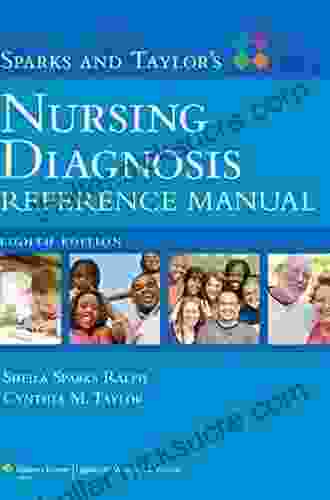
 Ernesto SabatoSparks Taylor Nursing Diagnosis Reference Manual: A Comprehensive Guide for...
Ernesto SabatoSparks Taylor Nursing Diagnosis Reference Manual: A Comprehensive Guide for... Fletcher MitchellFollow ·13.6k
Fletcher MitchellFollow ·13.6k Rex HayesFollow ·18.6k
Rex HayesFollow ·18.6k Kevin TurnerFollow ·10.7k
Kevin TurnerFollow ·10.7k Cole PowellFollow ·8.4k
Cole PowellFollow ·8.4k Ian PowellFollow ·6.4k
Ian PowellFollow ·6.4k Carson BlairFollow ·19.9k
Carson BlairFollow ·19.9k Liam WardFollow ·6.1k
Liam WardFollow ·6.1k Vincent MitchellFollow ·12.8k
Vincent MitchellFollow ·12.8k

 Guillermo Blair
Guillermo Blair2nd Edition Revised And Expanded 2024: A Comprehensive...
The 2nd Edition Revised...

 Ronald Simmons
Ronald SimmonsDreaming of Ocean Cruising: A Voyage into Tranquility and...
For those seeking a respite from the mundane...
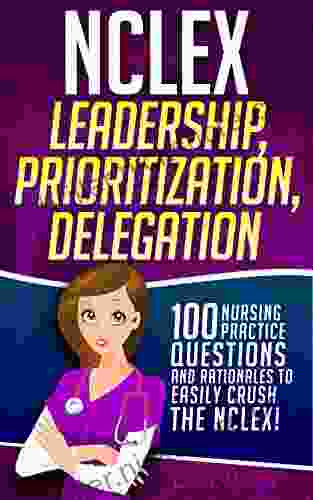
 Darren Nelson
Darren Nelson100 Nursing Practice Questions with Rationales to...
The NCLEX exam is a challenging but...

 Rex Hayes
Rex HayesMastering Bodyweight Training for Martial Arts: A...
For martial...
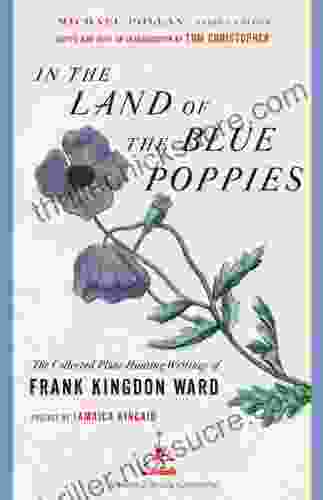
 Dillon Hayes
Dillon HayesIn The Land Of The Blue Poppies: A Literary Journey to...
Prologue: A Tapestry of...

 Eliot Foster
Eliot FosterCollege University Writing Super Review Flash Card Books:...
College University...
4.5 out of 5
| Language | : | English |
| File size | : | 614 KB |
| Text-to-Speech | : | Enabled |
| Enhanced typesetting | : | Enabled |
| Word Wise | : | Enabled |
| Print length | : | 146 pages |
| Screen Reader | : | Supported |


